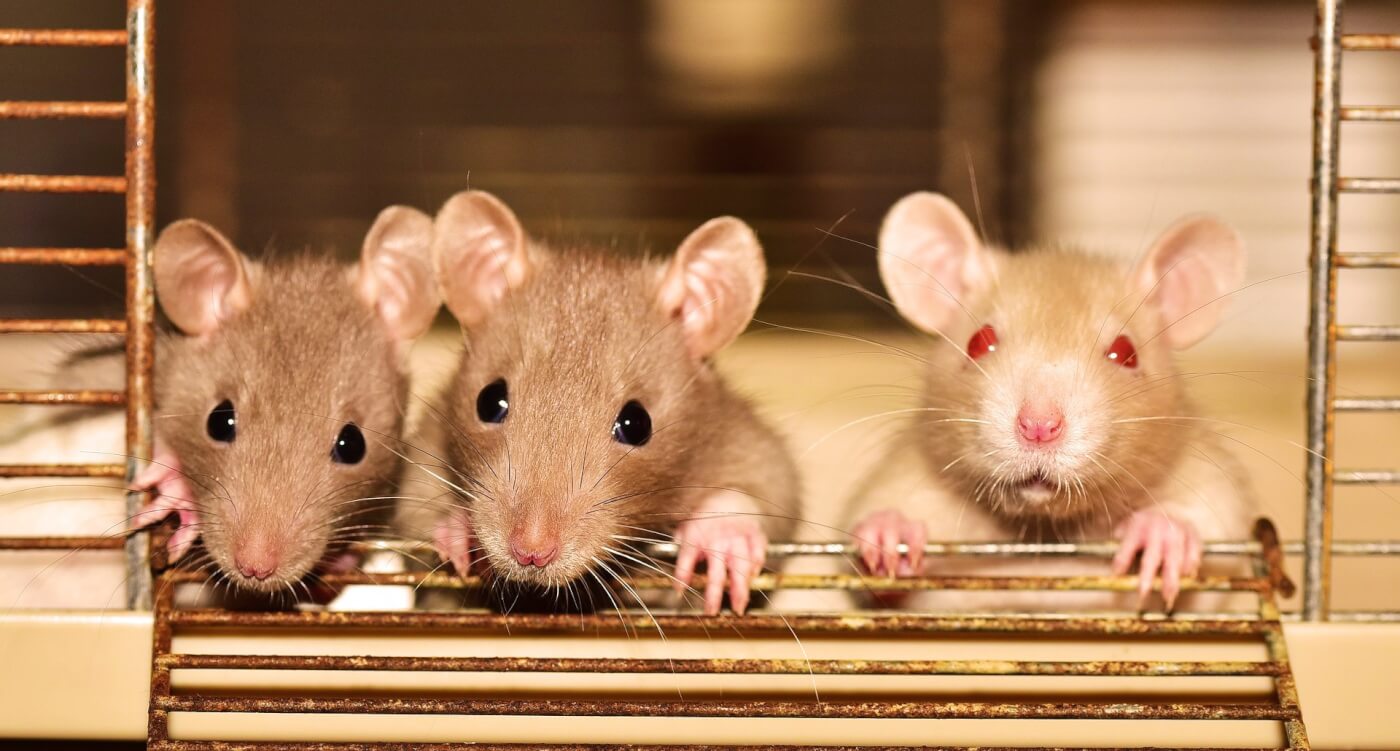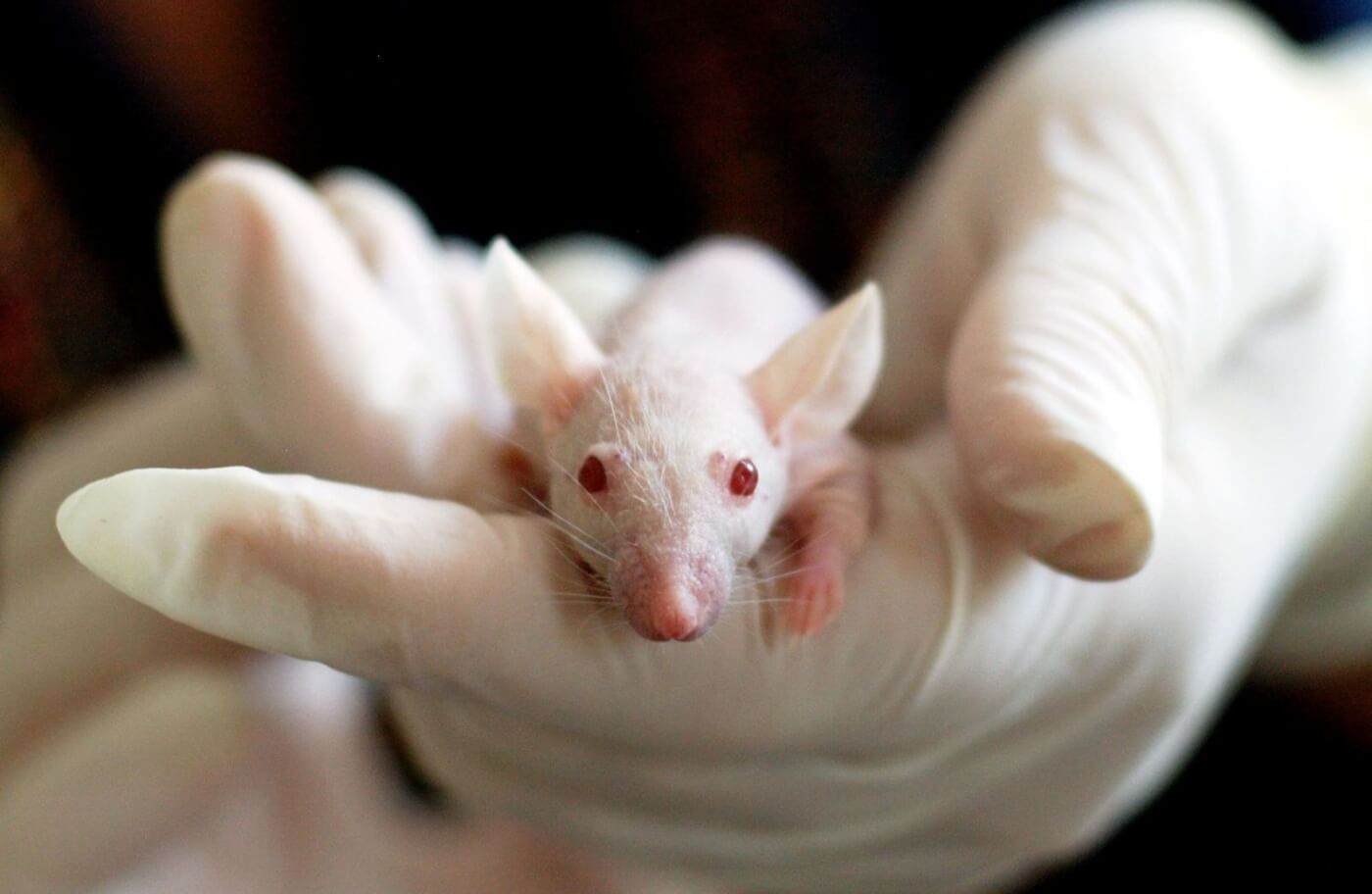Meet a Vivisection Victim: p53, a Genetically Modified Mouse
Momma called me Piffythee (short for p53). I like my name—it helps me remember that I’m someone instead of something.
I am a p53-deficient mouse, which means I was bred to have a predisposition to cancer. You see, the p53 gene controls cell growth and prevents tumors from forming, so mice like me tend to develop tumors by the time we’re 6 months old.
You could say my future was decided well before I was even conceived. While that may sound like something from a scary sci-fi movie, it really happened to me. It happens to hundreds of millions of us.

Experimenters play Dr. Frankenstein by manipulating our genes. First, they kill pregnant mice by severing their spinal cords from their brains. Then they steal their eggs and inject foreign DNA into them. Finally, they use tiny instruments to forcibly impregnate other mice with these eggs. I shudder to think of my momma and others like her being assaulted this way.
Here are some things that mice (like me) who are born from this violent procedure are engineered to do:
- Develop cancerous tumors
- Have an increased risk of heart disease and strokes
- Suffer from muscular degeneration and paralysis
- Become obese
- Suffer from addiction
- Have a predisposition to depression, anxiety, and fear
It’s pretty clear that the companies doing these horrible things to mice don’t see us as living beings with feelings and families. The Jackson Laboratory, where my momma was impregnated and I was born, boasts that it produces the “greatest variety of inbred, hybrid, and mutant mice in the industry.” Mutants. That’s what we are to them.
At The Jackson Laboratory, my momma lived in a tiny cage with a metal roof and plastic walls. We mice are nocturnal, but the lights, noises, and constant activity in the laboratory kept her awake day after day. She had no refuge, no cozy spot to burrow. In that cramped little box, she couldn’t jump, climb, or do other things that make mice happy. It was a joyless existence.
I was one of nine, but only two of us survived. Five of my siblings died before or soon after they were born, and workers killed the other two because they didn’t have the p53 mutation. It happens to a lot of mice like us. Many animals who are subjected to genetic modification don’t survive, and only a small percentage of those who do have the traits that experimenters want. But believe me, it’s no honor to be one of the “chosen ones.”

My brother and I stayed with Momma until we were 4 weeks old. We all lived in the same cage, and although it was cramped, at least we had each other. We were so close—playing and wrestling all day and sleeping in a cozy little heap when we grew tired. We cherished our days together.
But then the workers came. They opened the clanky metal lid of our cage, reached their cold gloved hands inside, and grabbed my brother and me by our tails. All three of us squealed in fear. I never saw Momma again.
Now here I am, in a shipping container with lots of mice I’ve never met. They’re fighting over the food and water, as there’s barely enough to go around. And my brother is nowhere to be found. How long will I be stuck in this dark shipping crate? What happens next? I heard the workers say something about a cancer laboratory. That must be my final destination.
But why? If experimenters really want to help humans, why do they experiment on mice like me? We feel pain and fear like humans do, but our bodies react differently to cancer and other diseases. Treatments that work in mice almost never work in humans.
So why was I born into a life of extreme suffering? I ask myself that every day.
Maybe a kind human will read this and speak up for me and the millions of other animals suffering in laboratories across the country. We have the right to live free from pain and suffering—and we need your help.

